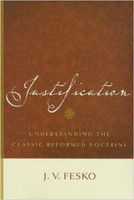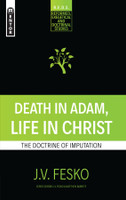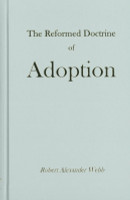Description
Some scholars argue that Jacob Arminius was a Reformed theologian and held to the basic tenets of Reformed soteriology. But is this the best way to understand Arminius? In this perceptive set of essays, J. V. Fesko reassesses the context and meaning of Arminius’s writings on topics such as predestination, effectual calling, union with Christ, justification, and perseverance. Granting that Arminius ministered within the Reformed church and held many theological points of continuity with Reformed orthodoxy, Fesko demonstrates that Arminius’s understanding of salvation differed significantly enough from confessional norms to conclude that he presented an alternative Protestant conception of soteriology. To view his soteriology as anything less is an effort to rewrite history and even to disrespect Arminius’s work.
Read Sample Pages
Contents
Preface
Acknowledgements
Introduction
1. Facientibus quod in se est
2. Predestination
3. Effectual Calling
4. Union with Christ
5. Justification
6. Perseverance
Conclusion
Bibliography
Index
Endorsement
“In his well-known lucid academic style, Dr. Fesko paints a clear and honest picture of the theology of Arminius. A careful analysis of the sources combined with placing Arminius in the context of early modern Calvinism makes this book a great contribution to the history and the lasting relevance of Reformed theology.”
—Herman Selderhuis, Theological University Apeldoorn
“J. V. Fesko has repeatedly shown himself to be an expert interpreter of the Reformed tradition’s history on both the doctrinal and contextual fronts. In this insightful volume on Jacob Arminius, he applies that same care to one of the classic foils of Reformed theology, giving nuanced exposition to Arminius’s thought on the nature of divine grace and our salvation and exploring how Arminius developed his views even from within the context of a Reformed church and university.”
—Harrison Perkins, associate pastor, London City Presbyterian Church, and visiting lecturer in systematic theology at Edinburgh Theological Seminary
About the Author
J. V. Fesko is Harriet Barbour Professor of Systematic and Historical Theology at Reformed Theological Seminary, Jackson, Mississippi, and an ordained minister in the Orthodox Presbyterian Church. Dr. Fesko’s interests include early modern Reformation and post-Reformation theology, the integration of biblical and systematic theology, and soteriology, especially the doctrine of justification. Dr. Fesko has authored or edited more than twenty books and written fifty published essays for various journals and books.







